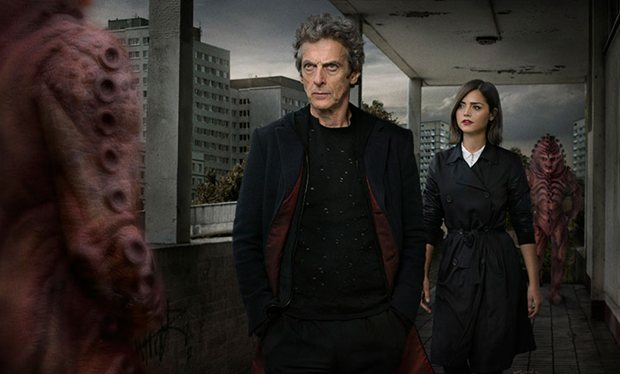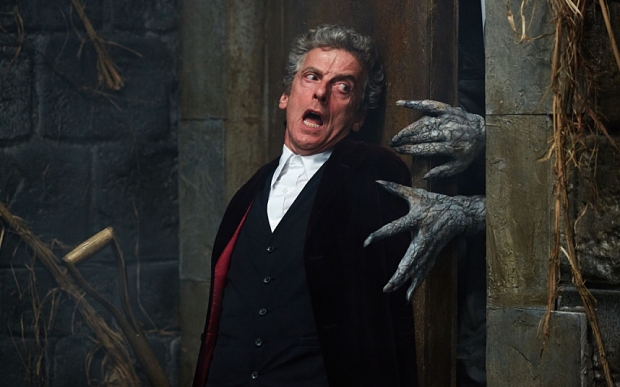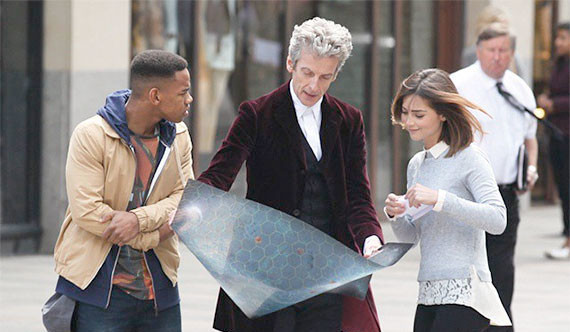“If he rose/If he chose”: Frame of Mind
It was only a matter of time before we returned to the dark recesses.
In many ways “Frame of Mind” is Brannnon Braga’s archetypal Star Trek: The Next Generation story. It certainly bears all of his trademarks: A bold and unafraid examination of genuinely dark psychological horror themes done with a deft and ambitious surrealist flair. Braga is also flatly unafraid to throw us some undiluted theory, with copious quotations, citations and visual nods to the work of Carl Jung. It’s a candid and refreshing bolt of unashamed intellectualism that goes a long way towards letting us know what Braga thinks his show’s audience is like: Star Trek isn’t exactly patronizing, or at least not as much as a lot of other television is, but even so it’s still rare for it to be this frankly and openly (and literally) philosophical, and every time it happens it feels like this really should be the way the show always operates. Pretty much nowhere else are you going to get a 200-level course on Jungian psychology and dream theory told through a mini piece of abstract sci-fi cinema on primetime television.
Braga’s debt to his idol David Lynch is certainly on display tonight. We wouldn’t expect to see blatant body horror on Star Trek: The Next Generation (…yet), but the suitably dreamlike (or should I say nightmarish) flow to the story brought exquisitely to life through James L. Conway’s direction remains undeniably Lynchian, and also very, very Brannon Braga. And yet in spite of the entirely deserved wild acclaim this episode gets from fandom (it’s yet another stellar highlight of an absolutely astronomical creative period), when you sit down to watch “Frame of Mind” it actually comes across as one of Braga’s more restrained and subdued offerings: As haunting as the concept of perceptive reality being in constant flux and turmoil is and as absolutely gripping as Jonathan Frakes is as the beleaguered Will Riker (unquestionably one of his absolutely finest hours on the series, end of: Frakes should have at least been nominated for something), the central premise remains surprisingly pedestrian, at least by Braga standards.
As the series is obviously not going to undo six years of character development and world building in 45 minutes, we know from the start the “real” world is the Enterprise, or some manifestation of it. The game then becomes trying to guess how many iterations we have to pass through and the meaning of a handful of specific psychological signifiers. Unlike Dirty Pair: Affair of Nolandia, which I once compared to “Frame of Mind” long ago and far away, there’s never any genuine doubt cast here onto the true nature of observable reality, it’s always just a matter of getting to the bottom of the mystery that’s caused things to go all meta-Lynchian and freaky this week. Even when compared to the utterly sublime dreamworld symbolic logic of Braga’s own “Birthright, Part I” a few weeks back, “Frame of Mind”’s hook of “Riker wakes up in an insane asylum and doesn’t know how he got there” feels fairly straightforward and almost simplistic.…


 “…the existence of a conventional order is contingent upon its acceptance; in fact a rule or understanding cannot be said to be a convention unless it is accepted. In ritual, however, acceptance and existence entail each other, for a liturgical order is perforce accepted in its realization, in, that is to say, the performance which gives it substance. Since obligation is entailed by acceptance, and the breaking of obligation is per se immoral, the existence, acceptance and morality of conventions are joined together indissoluably in rituals; they are, in fact, virtually on and the same.” — Roy Rappaport, Ritual and Religion in the Making of Humanity
“…the existence of a conventional order is contingent upon its acceptance; in fact a rule or understanding cannot be said to be a convention unless it is accepted. In ritual, however, acceptance and existence entail each other, for a liturgical order is perforce accepted in its realization, in, that is to say, the performance which gives it substance. Since obligation is entailed by acceptance, and the breaking of obligation is per se immoral, the existence, acceptance and morality of conventions are joined together indissoluably in rituals; they are, in fact, virtually on and the same.” — Roy Rappaport, Ritual and Religion in the Making of Humanity We don’t usually do breaking news at Eruditorum Press, but the initial reports I saw on this one were disturbing enough that I dug into it. The result, thankfully, appeared considerably less disturbing than first glance, but I’m going ahead and running the story anyway, if only as a reminder of the constant sexist background noise that pervades fandom.
We don’t usually do breaking news at Eruditorum Press, but the initial reports I saw on this one were disturbing enough that I dug into it. The result, thankfully, appeared considerably less disturbing than first glance, but I’m going ahead and running the story anyway, if only as a reminder of the constant sexist background noise that pervades fandom. Another preview essay from my end-of-year collection Guided by the Beauty of Their Weapons,
Another preview essay from my end-of-year collection Guided by the Beauty of Their Weapons, 
 As I’ve said many a time, what I want out of
As I’ve said many a time, what I want out of 
 I’m joined this week by our very own Holy Boson to discuss Face the Raven and whatever else we got off talking about. Apologies for some early audio quality issues with my end; I had a mic problem that straightens out ten minutes or so in.
I’m joined this week by our very own Holy Boson to discuss Face the Raven and whatever else we got off talking about. Apologies for some early audio quality issues with my end; I had a mic problem that straightens out ten minutes or so in.  Join Jack (i.e. me) and my buddy, actor Elliot Chapman (Big Finish’s new Ben Jackson, and recent Pex Lives guest), for our very belated Hallowe’en Shabcast, in which we chat Dracula.
Join Jack (i.e. me) and my buddy, actor Elliot Chapman (Big Finish’s new Ben Jackson, and recent Pex Lives guest), for our very belated Hallowe’en Shabcast, in which we chat Dracula.